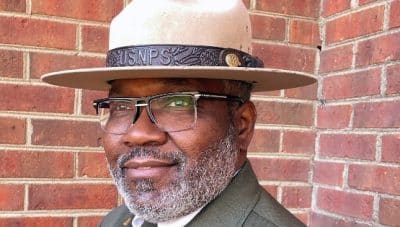
Abigail Spanberger today led the introduction of a bipartisan bill that would help improve police statistics, strengthen community policing initiatives, and study best practices for including measures of community trust in police metrics.
Crime statistics alone often fail to capture the realities of how a given community interacts with police and sheriffs, which can have negative implications on an agency’s ability to carry out its work effectively.
This current method of measuring police success not only risks conflating short-term efficiency with long-term effectiveness, but it reinforces a system in which police and sheriff departments are judged professionally by one set of standards and judged publicly by another.
Spanberger’s Measuring What Matters Act would establish a federal working group to develop best practices for incorporating community feelings of trust into official evaluations — alongside traditional crime statistics and other performance measures.
By starting the process of including community satisfaction and trust in these metrics, the legislation would help align the professional and public understanding of police success.
“As we look to both improve community-focused policing and keep our streets safe, we need to better understand how we truly measure success in policing. Police and sheriff departments currently have the ability to measure changes in crime, but they have not been provided the tools necessary to measure changes in community trust. As a former federal law enforcement officer, I recognize the major challenges facing police and sheriff departments as they attempt to measure this trust and build a stronger relationship with their communities,” said Spanberger (D-VA-07).
“Our Measuring What Matters Act would assemble a committed group of policing experts and officials to identify best practices for incorporating community feelings of trust into police metrics — and they would then test these recommendations on the ground. Increased community trust allows officers to work collaboratively with community members to identify problems and implement solutions — and I am hopeful that our bipartisan bill can build a shared understanding of police success between those wearing the badge and those whom they protect.”
Spanberger led the introduction of the bipartisan bill alongside Van Taylor (R-TX-03).
“My congressional district in Collin County is made up of some of the safest cities in the nation,” said Taylor. “Our law enforcement officer engage with those they serve and have earned the trust of their community. By providing hardworking law enforcement officers across the country additional data and information, we can help other communities mode the success we have built in North Texas.”
“The Measuring What Matters Act will provide the necessary foundation and resources for law enforcement agencies, large and small, to build community trust in their local law enforcement agencies, promote transparency and foster positive relationships between law enforcement and the community,” said Louisa County Sheriff Donald A. Lowe. “I am happy to support Representative Spanberger on this much needed legislation, and I thank her for her work and dedication on this important project.”
“It is important in law enforcement that agencies collaborate with the community on policing strategies and problem solving in their particular neighborhoods,” Henrico County Police Chief Eric English said. “The community needs to be involved in these conversations.”
“Today, more than ever, we need to work to rebuild the trust and legitimacy of law enforcement by the communities they serve. Rep. Spanberger reached out to stakeholders across her district asking for input on crafting her bill, the Measuring What Matters Act, to build upon the recommendations which came out of the 2015 Presidential Task Force on 21st Century Policing,” said Michael Harvey, executive director, Rappahannock Regional Criminal Justice Academy. “This act will bring community stakeholders and law enforcement leaders together to craft measurable and actionable solutions to show the true efficacy of public trust in law enforcement. This bill will provide the metrics to truly measure what matters, communities having trust and confidence in their law enforcement agencies.”
“The Measuring What Matters Act will allow researchers to take a closer look at public safety data. Police can’t participate effectively in society if we’re being guided by outdated, misleading, and incomplete information. This bill can help bring us all into the 21st century,” said Lt. Diane Goldstein (Ret.), a 21-year police veteran and executive director, Law Enforcement Action Partnership (LEAP).










